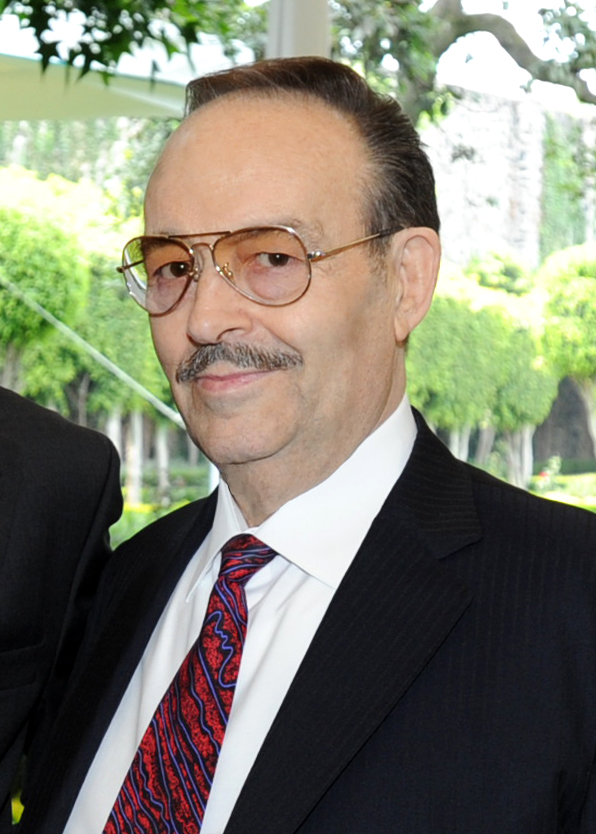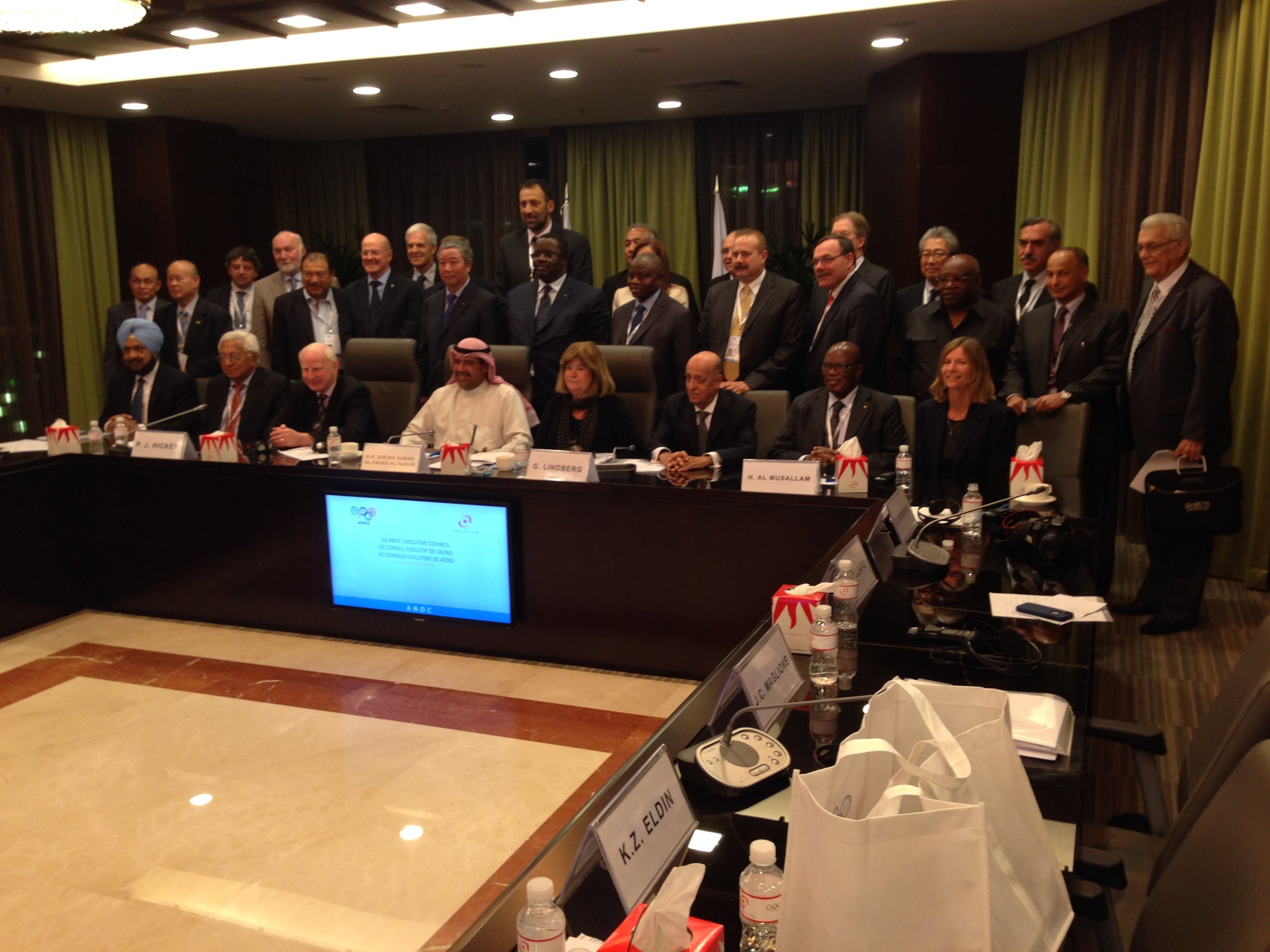With so many positive stories to tell, it can be so mystifying to read what the International Olympic Committee considers the most important bits of its news in its releases. The IOC likes to say that athletes are at the core of everything it does. On Thursday, at a meeting of its policy-making executive board, it modified provisions together known as Rules 40 and 50 so that athletes can sport “generic” or “non-Olympic advertising” during the Games. If ultimately approved by the full IOC, this will likely amount to a major step forward for athletes, especially in track and field, who had protested over prior restrictions that had stopped them from mentioning their sponsors.
Instead of trumpeting this news in its release, what did the IOC lead off with?
This:
The Sochi 2014 Games made an operating profit of $50 million.
In its release, the IOC for sure did not mention that the $50 million figure is way below the $261 million surplus reported last June by the Russian organizers.
That drop can at least in part be explained by the ruble’s drop in value against the dollar.
Just a little math: $50 million is about a fifth as much as $261 million.
Just a little bit more math, and it’s only because the IOC brings this on itself: $50 million equals what percentage of $51 billion, the reported cost of staging the 2014 Winter Games?
That would be 0.098 percent.
This is the news the IOC seeks to spotlight for the world?
When it genuinely has good news about the athletes, its purported raison d’être?
Of course, there’s more. The IOC gets 20 percent of the $50 million surplus. Math: $10 million. It said it would transfer that $10 million to the Russian Olympic Committee for sports development, the newly approved Olympic Channel and an Olympic Museum in Russia.
Yay for Russia!
Imagine if the IOC gave the U.S. Olympic Committee $10 million just like that. How would that go over around the world?
But I digress.
In all, the IOC said, it contributed $833 million to the Sochi 2014 operating budget, which ultimately roughed out at a total of about $2 billion. This contribution marked an increase of $83 million over previous estimates.
The IOC then spent two full paragraphs agreeing that there remains a “misconception” around the costs of the Games — that is, what it costs to run them and all the stuff that gets built around them or because they came to town.
All recent editions of the Games have made an operating profit, it pointed out.
It also — correctly — noted that the operating budget of an Olympic Games, Summer or Winter, is privately funded, with a significant contribution from the IOC. For the Rio 2016 Games, that contribution will be on the order of $1.5 billion.
But then:
The “other part of the budget” is the “investment the host city authorities decide to make,” the IOC said.
This is where the IOC gets it totally, fundamentally wrong.
It’s not the “other part of the budget,” and this is why the IOC is saddled with the perception that Sochi cost $51 billion.
This perception is the thing that has dragged at the 2022 Winter Games race and is more or less the first thing almost anyone anywhere thinks about when they think about Sochi. Or, pretty much, the Games in general -- whoa, the Olympics are cool but, holy smokes, they are really, really expensive!
Here is the thing:
The infrastructure cost is totally, fundamentally separate.
It’s why for decades cities and countries all over the world have sought the Olympic Games — as a catalyst to get public policy works done in the hard-deadline of seven years, the date from which the IOC awards a Games to opening ceremony, instead of 20 or 30, which is what it would otherwise take if roads, bridges, sewage pipes, metro lines, airports and whatever else could even get done in the first instance.
For years and years, however, the IOC has allowed the infrastructure budget misconception to hang around.
The IOC says it’s too difficult to explain otherwise.
It’s not.
There are two distinct budgets. One is the operating budget. The other relates to the infrastructure numbers.
Is that difficult?
No.
But even in Thursday's official IOC release, the IOC gets it wrong. Little wonder why when the IOC complains that Sochi didn’t really cost $51 billion, no one wants to hear it. Because it’s just “the other part of the budget.”
There’s so much more to chew on in this IOC release — for instance, the IOC executive board opting not to go in April to the SportAccord convention in Sochi, a clear slap at Marius Vizer, the key figure in that organization, and for what purpose?
The release ends, meanwhile, with a paragraph that aims to pay tribute to Mario Vazquez Raña, the longtime IOC member from Mexico who for more than 30 years also served as president of the Assn. of National Olympic Committees. He died earlier this month. The executive board, the release said, ended its meeting with a minute of silence in his memory.
Nowhere in that paragraph does it also mention that Vazquez Raña also served on that very same IOC executive board for a dozen years.
Back to the real lead — as we would say in journalism terms — of the day, and an observation.
The Olympic movement genuinely does good work all over this world. Much of it is not front-page stuff nor perhaps should it be. Much is one-to-one change. Plenty is the stuff of inspiration and dreams.
At the same time, the IOC itself has a huge image problem. Thursday's release from the executive board meeting in Rio de Janeiro is emblematic of this problem.
The IOC says it wants to be transparent and accountable. It wants to reach out to young people so they can understand what it is and what it does.
Really?
Here is a challenge. Read these paragraphs from the release and — no fair if you have had years of experience in the Olympic scene — decipher them.
“Proposed advertising changes
“The EB agreed to two proposals regarding changes to Rule 40 and Rule 50 of the Olympic Charter, both of which will be presented to the next IOC Session this July in Kuala Lumpur for final approval.
“In regard to the application of Rule 40, the IOC would, following Session approval, allow generic (non-Olympic) advertising during the period of the Games. The change to Rule 50 would increase the maximum size of a manufacturer’s identification while respecting the clean field of play to prevent conspicuous advertising.”
Seriously, there has to be a better way. It's athletes first. At least if the IOC genuinely means it: explain what Rules 40 and 50 say, in plain English, and what these changes — assuming a forthcoming OK in Kuala Lumpur — would mean for the athletes. It’s not difficult.
And put all of that first, ahead of stuff that translates to 0.098 percent. That should not be difficult to figure out, either.










